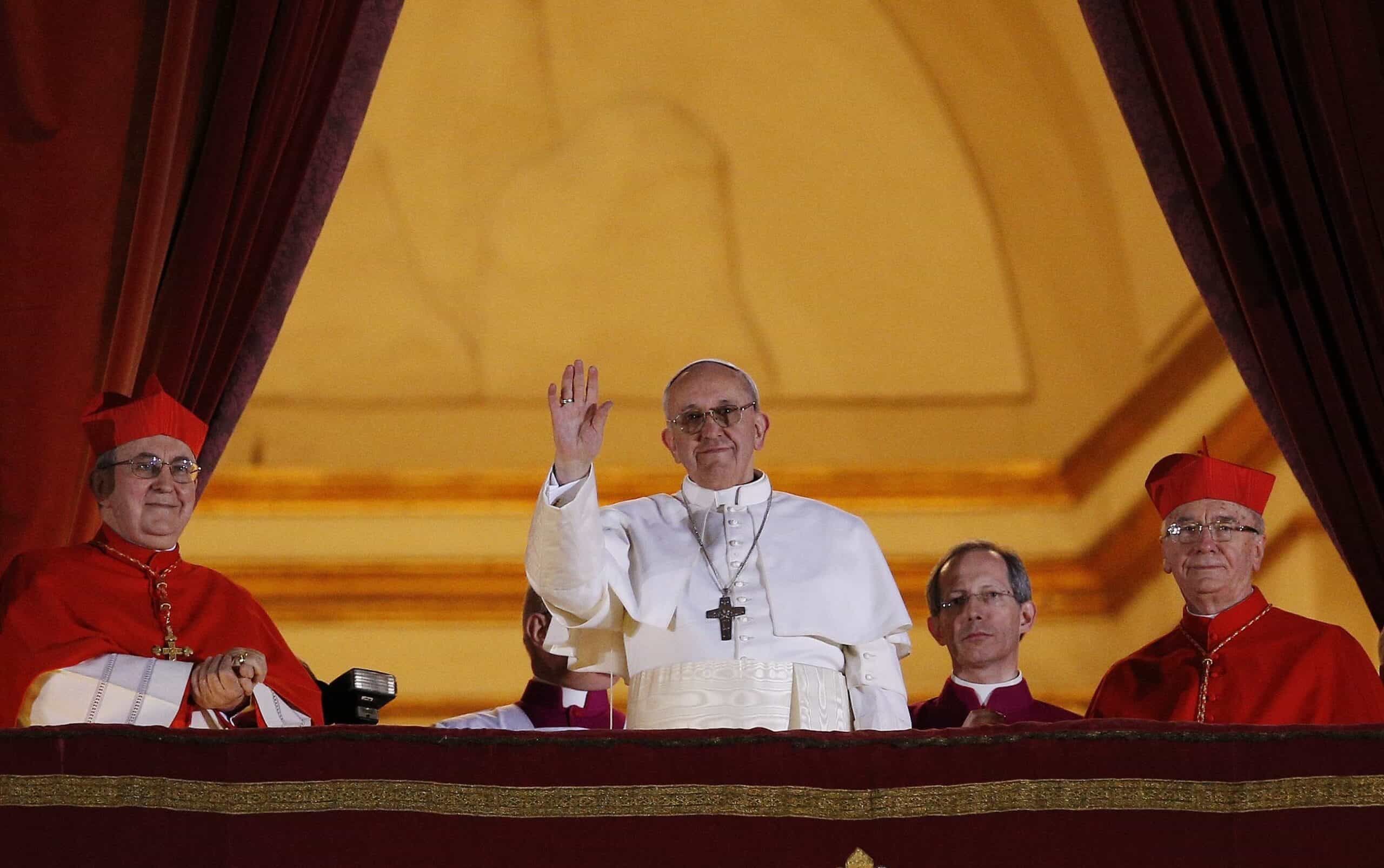Where were you when Pope Francis was elected on March 13, 2013?
I was in Kingston, Jamaica. It was my second year in the novitiate (the first stage of Jesuit formation) and I was spending three months working at a Jesuit school there. As we were all waiting for the announcement of white smoke, I remember one of the teachers ran up and said that we had a new pope. “Who is it?” I asked, excitedly. “Jorge Mario Bergoglio, from Argentina. He’s a Jesuit!” she exclaimed. “What?!” I said in disbelief. “There’s no way that the next pope is a Jesuit.”
Admittedly, I knew very little about Jorge Bergoglio at the time. This humble Cardinal of Buenos Aires became Pope Francis, the first Jesuit pope and the first pope from the Americas and the Southern Hemisphere.
Just as I was beginning my own journey as a Jesuit, we all began a journey with Pope Francis. Today, we have reached 10 years of this journey as we celebrate the anniversary of his election.
To mark the occasion, I asked the editing team of The Jesuit Post to send me some of their favorite moments, documents, and themes from the pontificate of Pope Francis so far. Here are ten of our favorite moments, in no particular order.
******
10 – The Joy of the Gospel – Evangelii Gaudium
Pope Francis’ first major document, the apostolic exhortation, “The Joy of the Gospel,” set the tone for his papacy. Francis reminds us of the mandate of Jesus to “Go therefore and make disciples of all nations…” (Mt 28:19). Francis emphasizes that we are a missionary church and that the greatest evangelical activity is to live out the gospel with joy and enthusiasm. It is from this document that we receive the now famous line that shepherds must take on the “smell of the sheep” – encouraging all pastoral workers to listen and stand with those to whom they seek to minister.
9 – “Who am I to judge?”
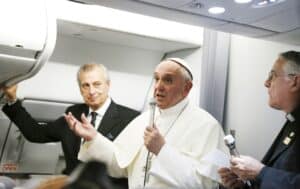
Pope Francis addresses journalists on his flight from Rio de Janeiro on July 28. (CNS photo/Paul Haring)
When questioned about gay priests by a reporter on a trip back to Rome, Francis responded, “If someone is gay and he searches for the Lord and has good will, who am I to judge?” These simple 5 words sent a shockwave through the world. Francis was not creating new teaching, in fact, when later questioned about his statement he affirmed: “I was paraphrasing by heart the Catechism of the Catholic Church where it says that people should be treated with delicacy and not be marginalized.” What he did do, however, was change the tone of the conversation regarding homosexuality and the Catholic Church. Rather than talking about “disorder,” Pope Francis spoke about compassion.
8 – Caring for Our Common Home – Laudato Si
This encyclical highlights the dangers posed to the environment by current human activity and the fact that the poor and vulnerable suffer the greatest impact from environmental disasters. Laudato Si is ultimately about relationships: the relationship that we have with the earth as a gift from God and the relationships that we have with other human beings who rely on the earth for life, health, and sustenance. Francis quotes the works of his predecessors, Pope Benedict and Pope St. John Paul II, reminding us that he is not the first pope to speak on ecology, but he has moved the conversation forward.
Read our overview of Laudato Si
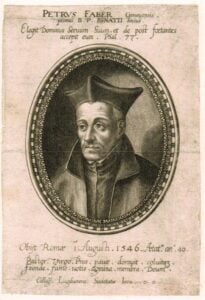
Pope Francis issued a decree declaring one of his favorite Jesuits, Blessed Peter Faber, a saint. (CNS photo/courtesy of Jesuit Curia)
7 – Canonization of Peter Faber
So far, Pope Francis has presided over the canonization of 911 new saints, including a group of more than 800 martyrs, as well as Sts. John Paul II, John XXIII, and Paul VI. Of all of these new saints, one in particular meant a great deal to Jesuits: the canonization of Peter Faber. Faber was there with St. Ignatius from the very beginning and Ignatius himself commented on his remarkable ability to give the Spiritual Exercises. After Faber was beautified in 1872, his cause for sainthood came to a stop. It seems fitting that one of Faber’s own Jesuit brothers was the one to finally canonize him on December 17, 2013, the pope’s 77th birthday.
6 – Trip to the United States; Address to Congress
In 2015, Pope Francis made his first visit to the United States, making stops in Washington, D.C., New York, and Philadelphia. One of the most historic aspects of this trip was his address before joint sessions of Congress. He is the first pope to do so. Francis pleaded with the representatives, and all Americans, to care for the most vulnerable among us: to care of the poor and the elderly, to eliminate hatred, violence, and bigotry, to welcome the migrant, to defend human life at every stage of development, and to care for our common home. He highlighted Abraham Lincoln, Dr. Martin Luther King, Jr., Dorothy Day, and Thomas Merton as representatives of the American people and examples of who we are all called to emulate.
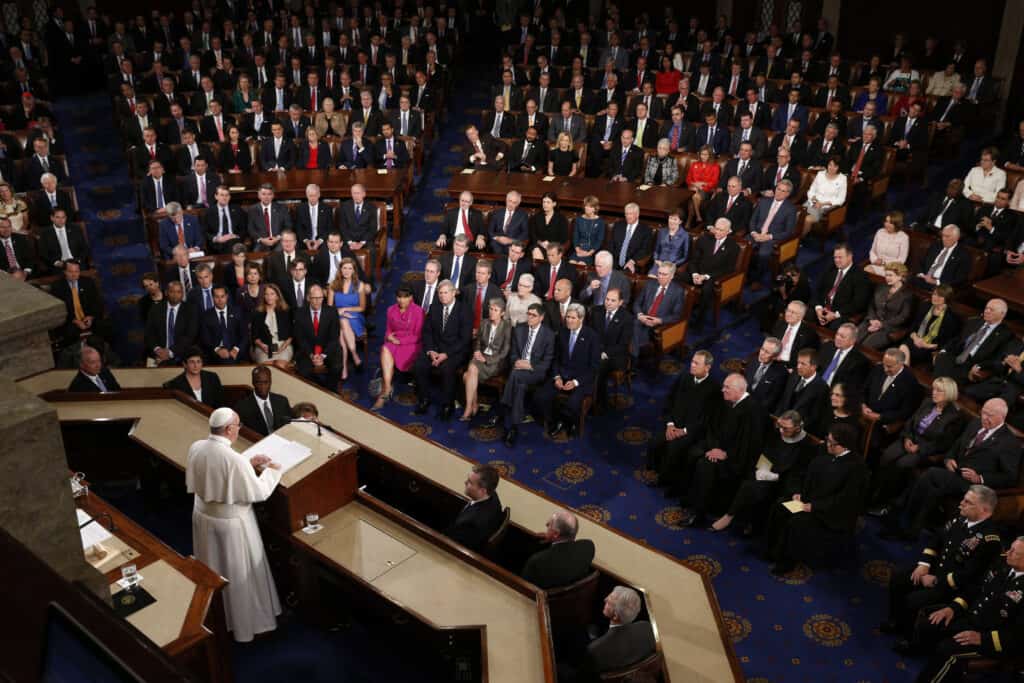
Pope Francis addresses a joint meeting of Congress at the U.S. Capitol in Washington Sept. 24, 2015. (CNS photo/Paul Haring)
5 – A Prayer for the World during COVID – “urbi et orbi”
On March 27, 2020, as shutdowns were taking place all over the world, Pope Francis held a stark, yet powerful prayer service in St. Peter’s Square. The Square, normally packed with people for such as event, was almost empty. Pope Francis looked out into the darkness, held up a monstrance with the Blessed Sacrament, and delivered his extraordinary blessing “urbi et orbi” (to the city and the world). In a time when people were scared and we didn’t know what was going to happen next, Francis gave us his blessing and led us in a prayer that someone bridged the distance between us all.
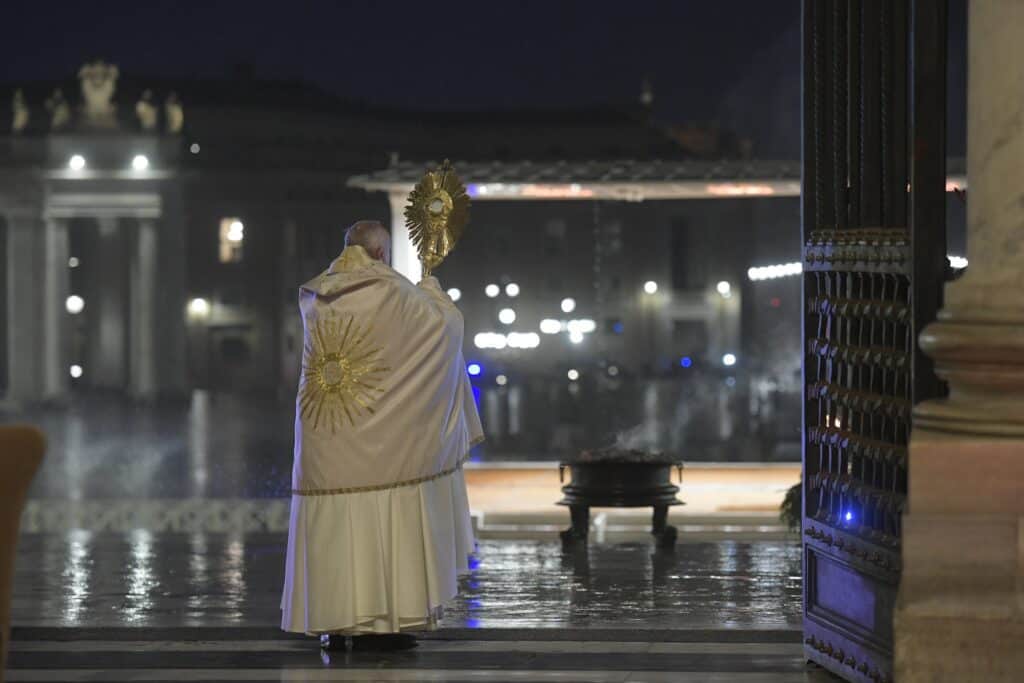
Pope Francis holds the monstrance as he delivers his extraordinary blessing “urbi et orbi” (to the city and the world) in the portico of St. Peter’s Basilica at the Vatican. (CNS photo/Vatican Media)
4 – “On Fraternity and Social Friendship” – Fratelli Tutti
On the feast of St. Francis of Assisi in 2020, Pope Francis released the third encyclical letter of his papacy. Fratelli Tutti provides an important look into Francis’ social teaching. At a time when we were all getting used to separation and social distancing because of the COVID-19 pandemic, Francis reminded us of the connections that we share as brothers and sisters. The encyclical articulates a call for all human persons to recognize and live out our common fraternity. It starts with a consideration of what is holding humanity back from the development of universal fraternity and moves to an expression of hope that peace and unity will be achieved through dialogue among peoples of faith.
Read our overview of Fratelli Tutti
3 – “On the Liturgical Formation of the People of God” – Desidero Desideravi
In this 2022 letter, Pope Francis insisted that Catholics need to better understand the liturgical reform of the Second Vatican Council and its goal of promoting the “full, conscious, active and fruitful celebration” of the Mass. Pope Francis sought to break through divisions that have grown in society and in the Church, and he called us to a greater awareness of the sacrifice of Christ and his real presence in the Eucharist.
“Let us abandon our polemics to listen together to what the Spirit is saying to the Church. Let us safeguard our communion. Let us allow ourselves to be embraced by the desire that the Lord continues to have to eat His Passover with us.” (n. 65)
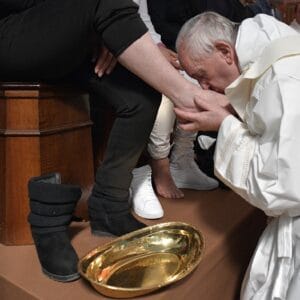
Pope Francis kisses the foot of an inmate April 13 at Paliano prison outside of Rome as he celebrates Holy Thursday Mass of the Lord’s Supper. (CNS photo/L’Osservatore Romano)
2 – Highlighting the Forgotten
This does not reflect any one particular moment, but a theme that has been present from the beginning of Pope Francis’ papacy. He seeks not only to highlight the forgotten, the poor, and the vulnerable, but to be in close contact with them. One perfect example of this is Pope Francis’ practice of celebrating the Holy Thursday service. While it is customary for a pope to wash the feet of 12 priests during the celebration, Francis has been known to celebrate the service in prisons and refugee centers, washing the feet of Catholics and non-Catholics, men and women, showing the love of Christ to all. This is just one of the ways that Pope Francis lives out his own call that we take on the “smell of the sheep,” by being in close contact with those most in need.
1 – Francis is his name
The final entry on this list is another general theme of Pope Francis’ papacy, but one that is highlighted in his very introduction to the world. When Jorge Bergoglio first walked out onto the central balcony of St. Peter’s Basilica he gave the world a simple wave and a smile. His name would be Francis. After his introduction and prayer for Pope Emeritus Benedict, and before his own papal blessing, he asked the world to pray for him. This was a humility worthy of the name Francis and just the first in a long line of simple, yet powerful statements that would continue to provide a great example to us all.
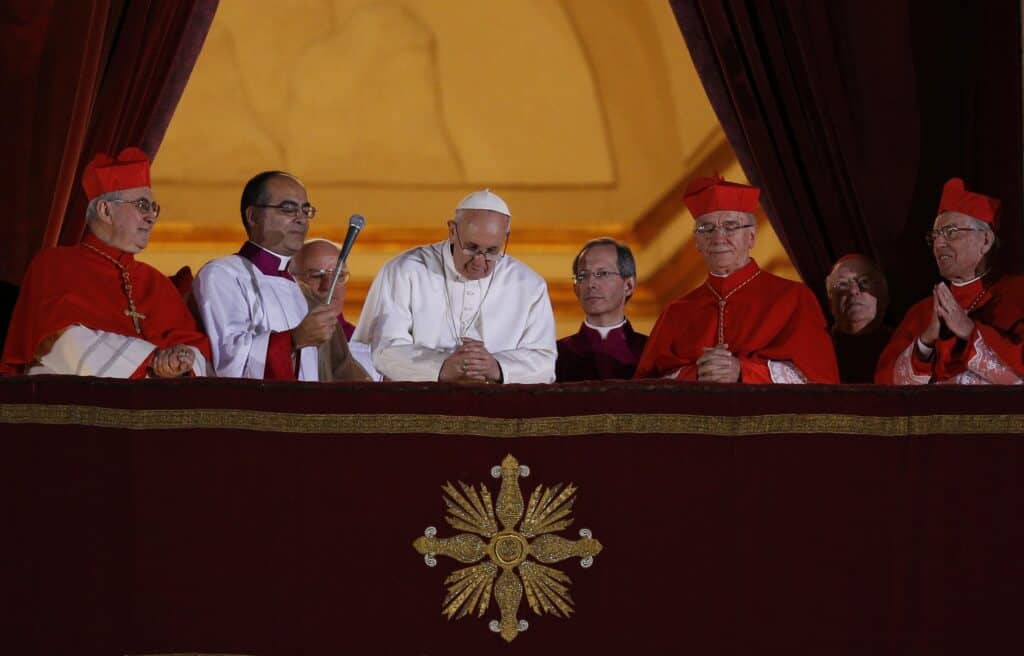
Pope Francis I leads a prayer as he appears for the first time on the central balcony of St. Peter’s Basilica at the Vatican March 13. (CNS photo/Paul Haring)
******
We have been inspired by Pope Francis’ words, writing, actions, and very demeanor. There are so many other moments that we could choose to fill this list and I’m sure there are many that you can think of as well.
Let’s take time today to think of the ways that Pope Francis has inspired us to care for one another and grow closer to God as a true friend. Let us give thanks for this inspiration and for the life and papacy of Pope Francis. Let us pray that Jesus Christ continue to work through his Vicar on earth, giving him the strength and courage he needs to be a faithful servant and a loving shepherd.
¡Viva el Papa!

